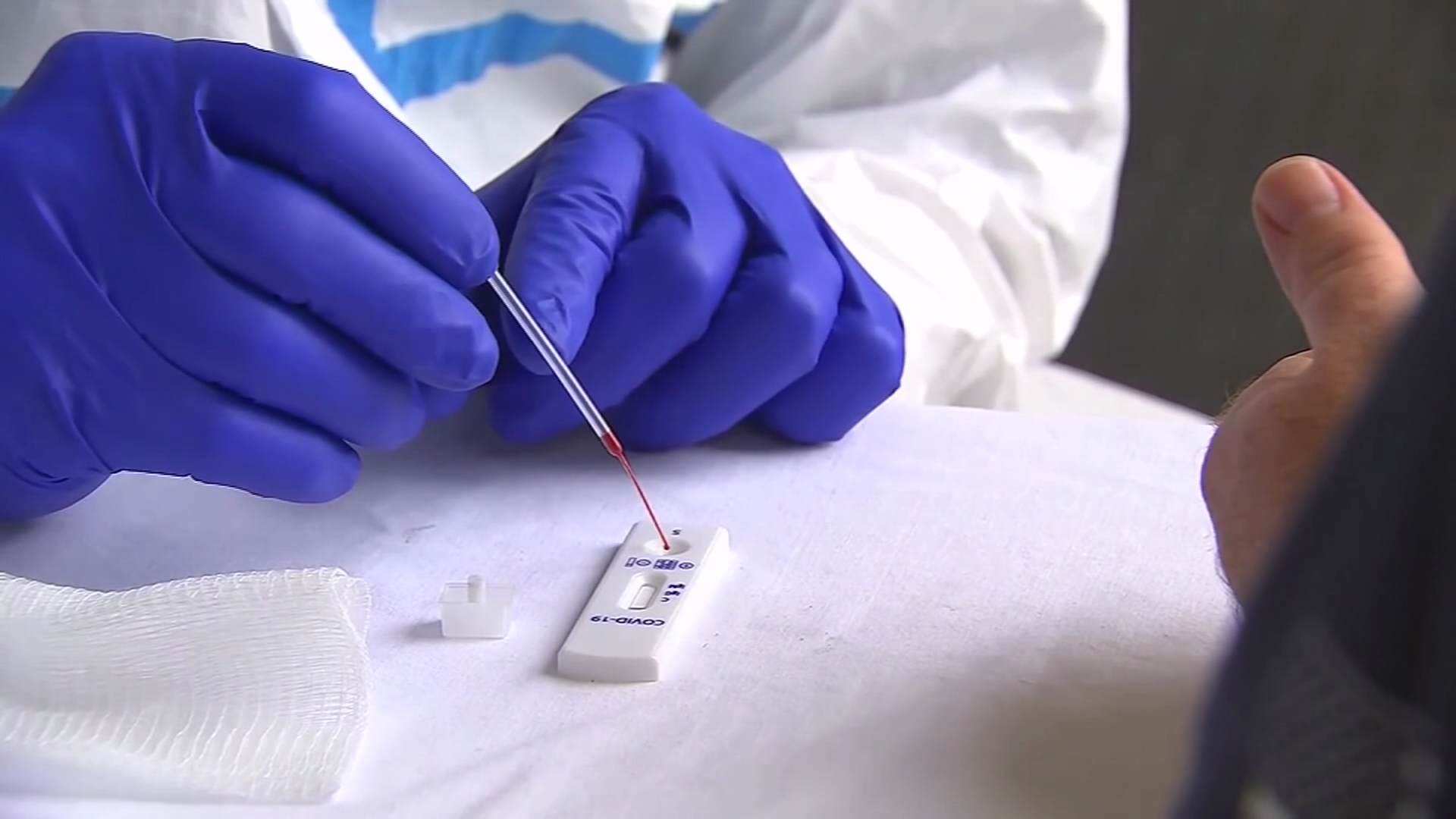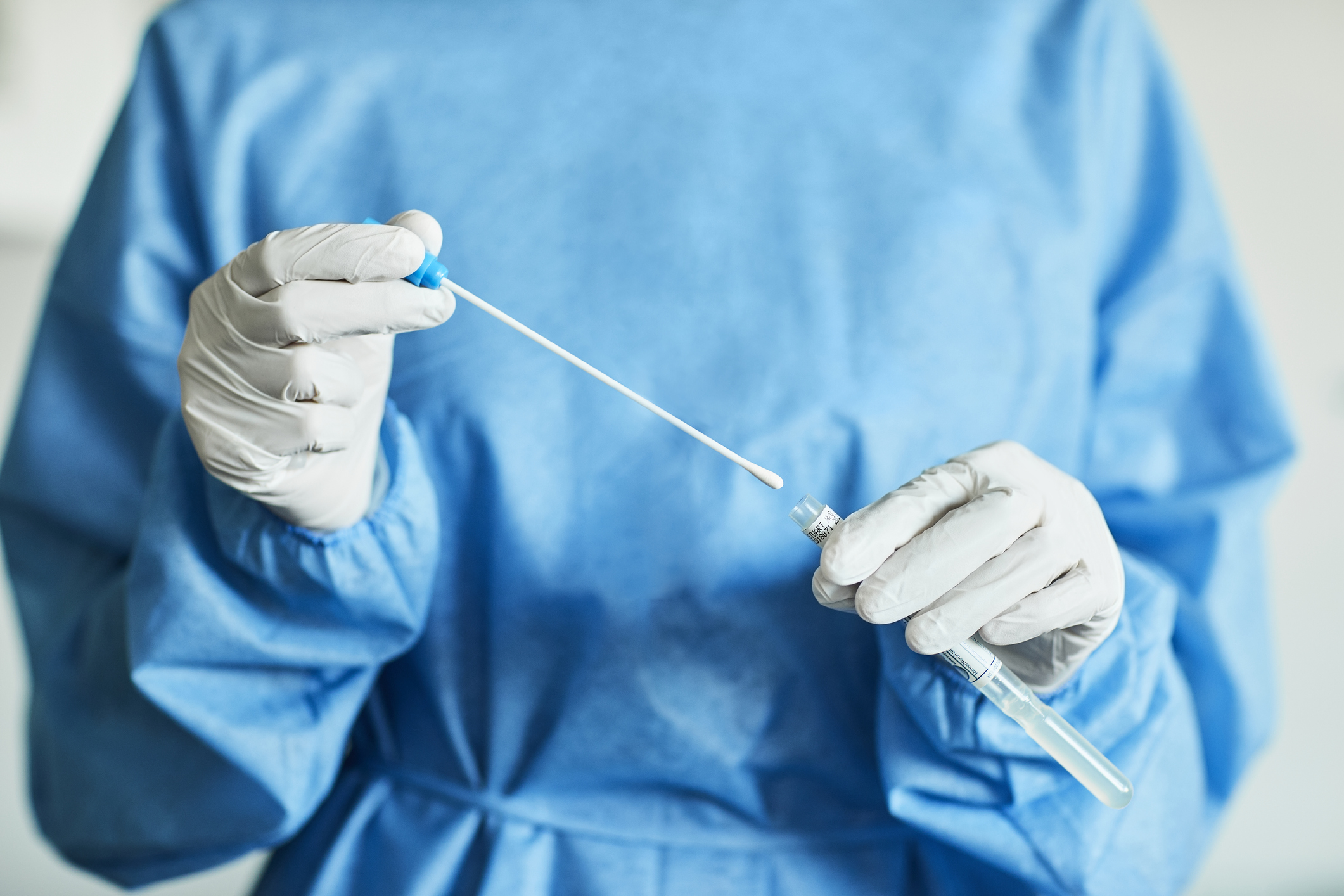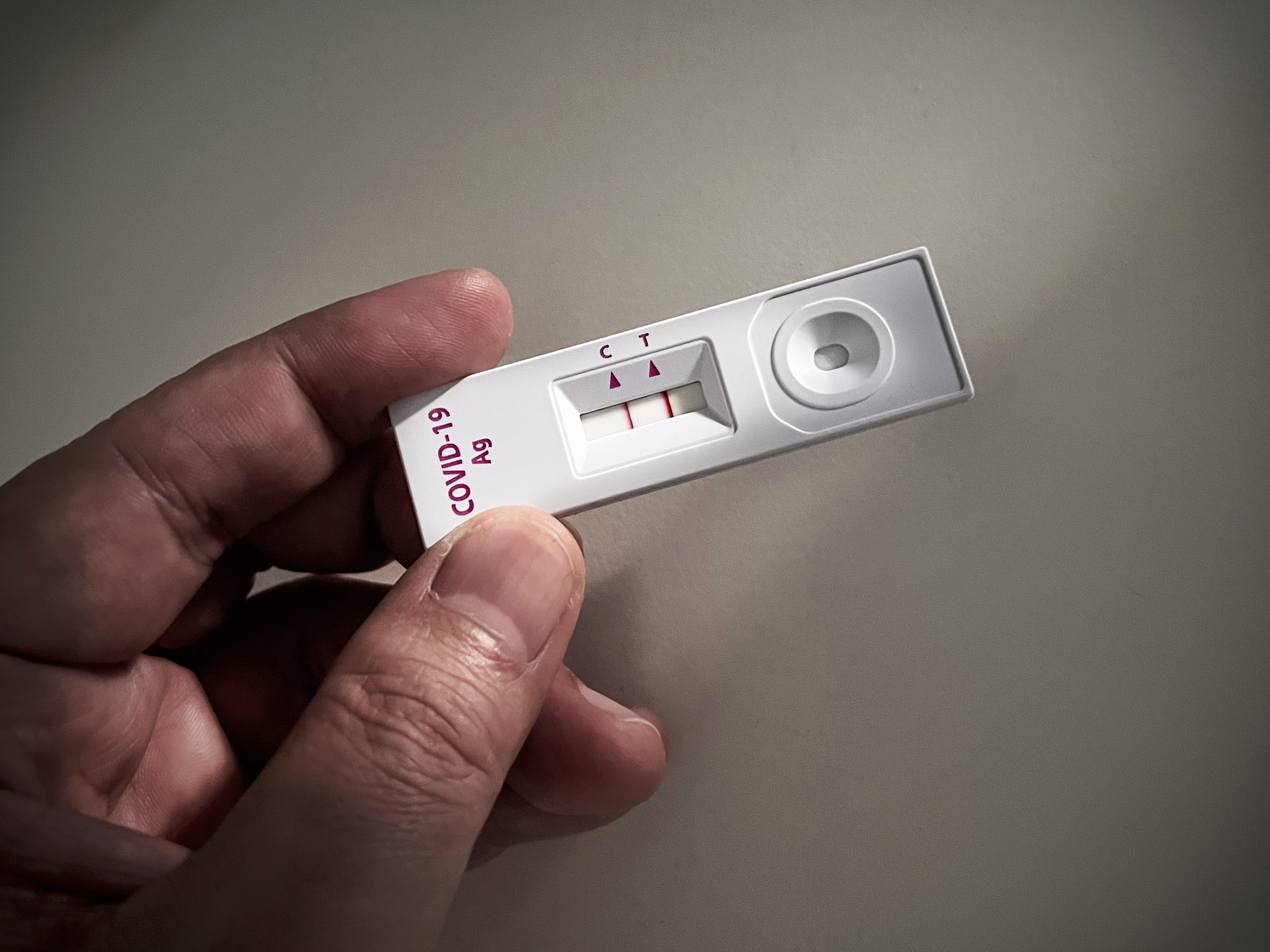At-home COVID tests have been credited for greatly improving access to testing and reducing demand at facilities, especially during surges brought on by the delta and omicron variants. Despite the positives, like widespread availability and quick results, at-home tests aren't recommended in all situations.
Generally speaking, rapid test sensitivity is typically 10-20% lower than PCR tests, which are performed by medical professionals and sent to laboratories for results, according to Hackensack Meridian Health in New Jersey.
The Centers for Disease Control and Prevention asserts "positive results from self-tests are highly reliable," but admits negative results may not necessarily rule out infection, particularly in those who are symptomatic. Because rapid tests are less sensitive than molecular tests, the Food and Drug Administration recommends taking multiple tests over several days to improve the chance of catching asymptomatic infections, according to an article by Yale Medicine.
The CDC notes that tests "are best used early in the course of illness to diagnose COVID-19 and are not authorized by the U.S. Food and Drug Administration to evaluate duration of infectiousness."
Feeling out of the loop? We'll catch you up on the Chicago news you need to know. Sign up for the weekly Chicago Catch-Up newsletter here.
While not as sensitive, at-home tests are particularly useful in some instances, according to doctors.
For instance, if you recently experienced COVID-19 and are around the 14-day mark, getting tested - and receiving a negative result - may provide some piece of mind, said Dr. Allison Arwady, commissioner of the Chicago Department of Public Health.
If you continue to experience lingering effects of COVID in the weeks following an infection, taking a rapid test may also be recommended - for the same purpose.
PCR tests may not be the best in such situation, as they are more likely to pick up the virus following an infection.
Even if you do test positive after the initial 10-day period, it's unlikely you're still contagious as infection is typically spread two days before one develops symptoms and up to 10 days after.
"The rapid antigen test is the one that will look to see...do you have a high enough COVID level that you are potentially infectious?" Arwady previously said. "Now, a PCR test, remember, can pick up up sort of traces of the virus for a long time, even if that virus is bad and even if it's not potentially transmitting."
If you're showing symptoms, such as a fever, cough or trouble breathing, using an at-home test is adequate, according to doctors. But it's when you're asymptomatic that you may want to consider taking a molecular test.
If you aren't showing symptoms, the sensitivity of rapid antigen tests is low, said Dr. Richard Martinello, a Yale Medicine infectious disease expert. In that case, you may want to take a molecular test as they're more sensitive. However, regardless of which test you take, the doctor emphasized "a lot still depends on the quality of the specimen."
For those isolating due to a COVID infection, there is no testing requirement to end isolation. However, the CDC recommends using a rapid antigen test for those who choose to take one.




